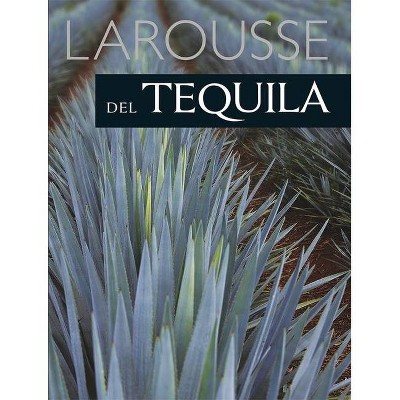Rabbit Island - by Elvira Navarro (Hardcover)

Similar Products
Products of same category from the store
AllProduct info
<p/><br></br><p><b> About the Book </b></p></br></br><b>A striking, innovative collection of stories that combines the gritty surrealism of Roberto Bolaño and David Lynch with the explosive meditations of Clarice Lispector, Rabbit Island locates madness and liberation in smoke-filled hotel rooms, mutating cities, and recurring dreams.</b><p/><br></br><p><b> Book Synopsis </b></p></br></br><p><b>Longlisted for the National Book Award for Translated Literature</b></p><p>These eleven stories from one of Granta's "Best Young Spanish-Language Novelists" combine gritty surrealism with explosive interior meditations, traversing the fickle, often terrifying terrain between madness and freedom. In the title story, a so-called "non-inventor" brings snow-white rabbits to an island inhabited exclusively by birds, with horrific results. In "Myotragus" a privileged man's understanding of the world is violently disrupted by the sight of a creature long thought extinct. Elsewhere in these stories that map dingy hotel rooms, shape-shifting cities, and graveyards, an unsightly "paw" grows from a writer's earlobe and a grandmother floats silently in the corner of the room.</p><p/><br></br><p><b> Review Quotes </b></p></br></br><br><p><b>LONGLISTED FOR THE NATIONAL BOOK AWARD FOR TRANSLATED LITERATURE</p> <p>A SOUTHWEST REVIEW MUST-READ BOOK OF 2021</b></p> <p>"In this impressionistic, dreamlike collection, Navarro, a Spanish writer, deploys surrealism to comic, haunting effect." <b>--<em>The New York Times</em></b></p><p>"In response to political and social upheaval, Franz Kafka turned Gregor Samsa into a bug. Borges imagined an endless full-scale map. More recently, Carmen Maria Machado fine-tunes fairy tales to make sense of a world that feels increasingly like a wolf at the door. Navarro...seems to be responding to Europe's crushing economic stratification, its reckoning with refugees and its crisis of cultural authenticity in an increasingly homogenized and unreal world. One thing that distinguishes Navarro in this genre of social nightmare fiction is that her central characters are almost entirely women -- all smart and strong but deeply flawed, and more human for it. For another, she is a master anatomist of class and, particularly, money -- both its power and the maddening indignity of its lack." <b>--<em>Los Angeles Times</em></b></p><p>"<em>Rabbit Island</em> is a gorgeous, unnerving, and scary follow-up for English readers to Navarro's 2017 translation of <em>A Working Woman</em>, and both books represent a movement of some of the most electric work happening in translation." <b>--Nathan Scott McNamara, <em>Los Angeles Review of Books</em></b></p><p>"The stories in <em>Rabbit Island</em>are beautiful, disquieting, and somewhat unhinged. They are the sort of stories whose narrative logic often defies easy categorization, even as their emotional spell lingers long after reading, like particularly vivid dreams." <b>--<em>Chicago Review of Books</em></b></p><p>"Masterful and strange... The world of <em>Rabbit Island</em> is one of uncertainty, where you can meet anyone and anything can happen. But Navarro navigates these spaces with spectral artfulness and ease; her authorial home is in the liminal."<b>--<em>Zyzzyva</em></b></p><p>"[Navarro] has a way of circling this or that rent in the fabric of reality, probing like a tongue at a canker sore with a mixture of disgust and fascination....Though in conversation with both, <em>Rabbit Island</em> is more aligned with [Edgar Allan] Poe than [Nikolai] Gogol. Taking little delight in the absurd, Navarro plunges into the despair, horror, and alienation of a society in steady retreat before the very irrational forces it aims to suppress." <b>--William Repass, <em>Full Stop</em></b></p><p>"<em>Rabbit Island</em>, which has been masterfully translated by Christina MacSweeney, is an outstanding introduction to Navarro's boundary-breaking work. This is a brilliant collection in which gritty surrealism, poetry, noir, and horror collide, and the result will stick with readers like the image of a grandmother floating in the air in the corner of a dark room." <b>--<em>Southwest Review</em></b></p><p>"Impeccably translated by Christina MacSweeney, the stories in <em>Rabbit Island</em> take place in peripheral locales, settings that amplify Navarro's talent for capturing the emotions that arise when her characters, who often go unnamed, feel lost. She has palpable empathy for people who are estranged from family members, romantic partners, and society itself. And she has an infectious appreciation for the ways in which such circumstances can be at once distressing and exhilarating." <b>--Kevin Canfield, <em>Words Without Borders</em></b></p><p>"The 10 surreal, occasionally humorous and tender stories in <em>Rabbit Island</em> are sublime walks through a melancholic blood-flecked dreamscape...lays bare the remarkable heart of a hungry and somewhat terrifying philosopher." <b>--<em>Shelf Awareness</em> (starred review)</b></p><p>"Navarro showcases her ability to lead her characters from relative normalcy into nightmare terrain in starkly elegant prose and with a winking sense of humor." <b>--<em>Publishers Weekly</em></b></p><p>"Set between the seemingly familiar and elusively surreal, Navarro's tales unsettle readers through oneiric landscapes... Navarro--adroitly anglophone-enabled by award-winning Christina MacSweeney--distinctly proves her inarguable facility with short fiction." <b>--<em>Booklist</em></b></p><p>"Full of colorful, precise descriptions and sharp insights into the mind and body, Elvira Navarro's story collection <em>Rabbit Island</em> is inventive and atmospheric, arising where the everyday world ends and dreams begin." <b>--<em>Foreword Reviews</em> (starred review)</b></p><p>"<em>Rabbit Island</em> is a haunting masterwork. Dreamlike, the worlds presented in these stories feel at once familiar and darkly tilted, unsettling and unforgettable. Brilliantly atmospheric and thick with impending doom, Navarro's prose is elegantly tense, inventive, and lush." <b>--Kimberly King Parsons, author of <em>Black Light</em></b></p><p>On the farthest edges of radical honesty, Navarro discovers something surreal. Reading <em>Rabbit Island</em> is like spending a week at an abandoned hotel with rooms inhabited by haunted bunnies and levitating grandmothers. Dark, brilliant, and addictive. <b>--Sandra Newman, author of <em>The Heavens</em></b></p><p>"Beneath the impeccable surface of Navarro's ice-cold prose, dread and grief wrestle in a territory of uncanny shadows. Like the work of many great fantasists before her--Robert Walser, Leonora Carrington, Witold Gombrowicz, Remedios Varo--Navarro takes alien landscapes and turns them into eerily apt mirrors of our most secret realities. Grimly comedic, deeply affecting, these stories are a necessary poison, one that revives instead of destroys, emboldens rather than deadens. In spite of all the ghosts, madnesses, nightmares, and grotesque transformations they are subject to, her characters manage to make their own maps, turning endings into beginnings, disgust into love, death to peace: <em>Rabbit Island</em> is a series of unforgettable journeys designed by a master cartographer." <b>--Maryse Meijer, author of <em>The Seventh Mansion</em></b></p><p>"The stories in <em>Rabbit Island</em> are as surprising and delightful as they come. Here there are no mundane worlds: wherever an Elvira Navarro story begins, it eventually leads to the uncanny borderlands between dream and nightmare, love and fear, science and mystery, all of which are, of course, reality itself." <b>--Matt Bell, author of <em>Appleseed</em></b><p>"Some authors bend reality at will, and Navarro belongs to this group. Her stories are brave in the sense that they push against the formula present in most literary fiction by shattering reality time and again while also delivering mysterious tales that contain few answers and character development that wouldn't feel out of place in genre fiction. Rabbit Island, which has been masterfully translated by Christina MacSweeney, is an outstanding introduction to Navarro's boundary-breaking work."<b>--Gabino Iglesias, author of <em>Coyote Songs</em></b></p></p><p>"Elvira Navarro is certainly an excellent storyteller, sharp and brave. Her prose sounds always precise, confident, intense. Among the authors of my generation in Spain, I think she is, doubtless, one of the most engaging. <b>--Andrés Neuman, author of <em>Fracture</em></b></p><p>"This author's literary talent is a natural gift...the subtle, almost hidden, true avant-gardist of her generation." <b>--Enrique Vila-Matas, author of <em>Mac's Problem</em> and <em>Vampire in Love</em></b></p><p>"Elvira Navarro is one of the most intelligent and daring writers in the Spanish-speaking world." <b>--Daniel Saldaña París, author of <em>Among Strange Victims</em></b></p><p>"Elvira Navarro is an enormously gifted and disturbing young writer with an unusual eye for the bizarre; she captures personal fragility with deceptively detached prose that stays with us like a scarring incision." <b>--Lina Meruane, author of <em>Seeing Red</em></b><br><p/><br></br><p><b> About the Author </b></p></br></br>Elvira Navarro won the Community of Madrid's Young Writers Award in 2004. Her first book, <em>La ciudad en invierno</em> (<em>The City in Winter</em>), published in 2007, was well received by the critics, and her second, <em>La ciudad feliz</em> (<em>The Happy City</em>, Hispabooks, 2013) was given the twenty-fifth Jaén Fiction Award and the fourth Tormenta Award for best new author, as well as being selected as one of the books of the year by <em>Culturas</em>, the arts and culture supplement of the Spanish newspaper <em>Público</em>. <em>Granta</em> also named her one of their top twenty-two Spanish writers under the age of thirty-five. She contributes to cultural magazines such as <em>El Mundo</em> newspaper's <em>El Cultural</em>, to <em>Ínsula</em>, <em>Letras Libres</em>, <em>Quimera</em>, <em>Turia</em>, and <em>Calle 20</em>, and to the newspapers <em>Público</em> and <em>El País</em>. She writes literary reviews for <em>Qué Leer</em> and contributions for the blog "La tormenta en un vaso." She also teaches creative writing.<p>Christina MacSweeney received the 2016 Valle Inclan prize for her translation of Valeria Luiselli's <em>The Story of My Teeth</em>, and <em>Among Strange Victims</em> (Daniel Saldaña París) was a finalist in the 2017 Best Translated Book Award. Among the other authors she has translated are: Elvira Navarro (<em>A Working Woman</em>), Verónica Gerber Bicecci (<em>Empty Set</em>;<em> Palabras migrantes/Migrant Words</em>), and Julián Herbert (<em>Tomb Song; The House of the Pain of Others</em>). She is currently working on a second novel by Daniel Saldaña París. </p>
Price History
Cheapest price in the interval: 16.79 on October 22, 2021
Most expensive price in the interval: 16.79 on December 20, 2021
Price Archive shows prices from various stores, lets you see history and find the cheapest. There is no actual sale on the website. For all support, inquiry and suggestion messagescommunication@pricearchive.us




















